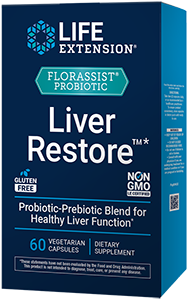
Newsletter
Newsletter
Supplementing with glucosamine linked with reduced risk of type 2 diabetes

February 25, 2020
A report published on January 27, 2020 in the ADA journal Diabetes Care revealed a significant association between the use of glucosamine and a lower risk of developing type 2 diabetes. Glucosamine is a popular supplement among individuals with osteoarthritis and is used by an estimated 20% of middle-aged adults in the U.S., U.K., and Australia.
The study included 404,508 men and women enrolled in UK Biobank, a population-based prospective study that was established to facilitate investigations of genetic and nongenetic determinants of diseases of middle and older age. Questionnaires completed upon enrollment in UK Biobank reported the regular use of various supplements while blood samples collected at this time provided information concerning levels of C-reactive protein (CRP, a marker of inflammation). Genetic data that was available for 360,550 participants was used to formulate type 2 diabetes genetic risk scores.
Participants in the current investigation were free of cancer, cardiovascular disease and diabetes at the beginning of the study. Type 2 diabetes was diagnosed among 7,228 subjects during a median follow-up of 8.1 years. Men and women who used glucosamine experienced an adjusted 17% lower risk of developing diabetes during follow-up. Having a genetic risk score associated with type 2 diabetes did not affect the association.
C-reactive protein levels at the beginning of the study were significantly lower in glucosamine users than nonusers. Among participants whose blood levels of CRP placed them among the top 25% of subjects, the use of glucosamine was associated with an 18.8% lower risk of diabetes compared to nonusers.
“To the best of our knowledge, the current study is the first to investigate the association of glucosamine use with risk of incident type 2 diabetes in a prospective cohort,” authors Hao Ma and colleagues at Tulane University announced. They noted that glucosamine has an anti-inflammatory property and that it may lower the risk of diabetes partly through this effect.
“Our findings indicate that habitual glucosamine use, a common supplement used for osteoarthritis and joint pain, is associated with a lower risk of type 2 diabetes,” they concluded. “These findings provide support that glucosamine may act as a potential supplement for preventing type 2 diabetes.”
Products
Apply What You've Learned: The Inflammation Link
- Acute inflammation is an essential process initiated by the immune system to fight off invaders. But when inflammation becomes chronic, it is associated with a host of health risks.
- In addition to its role in osteoarthritis, inflammation is associated with the development of diabetes and other diseases.1,2 Many of the factors that contribute to chronic inflammation are also risk factors for diabetes, including older age and being overweight or obese.
- Blood testing for C-reactive protein and pro-inflammatory cytokine levels can help provide a picture of the body’s level of inflammation.
- Dietary choices, such as consuming a healthy amount of vegetables, fruit, fish, olive oil, whole grains, nuts and legumes; supplementing with targeted nutrients, and avoiding red meat, high-fat dairy products and refined grains, can help maintain inflammation at a healthy level.3-4
References
- Yudkin JS et al. Arterioscler Thromb Vasc Biol. 1999 Apr;19(4):972-8.
- Goldfine AB et al. J Clin Invest. 2017 Jan 3;127(1):83-93.
- Shivappa N et al. Mol Nutr Food Res. 2017 Jun;61(6).
- Fernandes J et al. Nutrition. 2020 Jan;69:110559.









